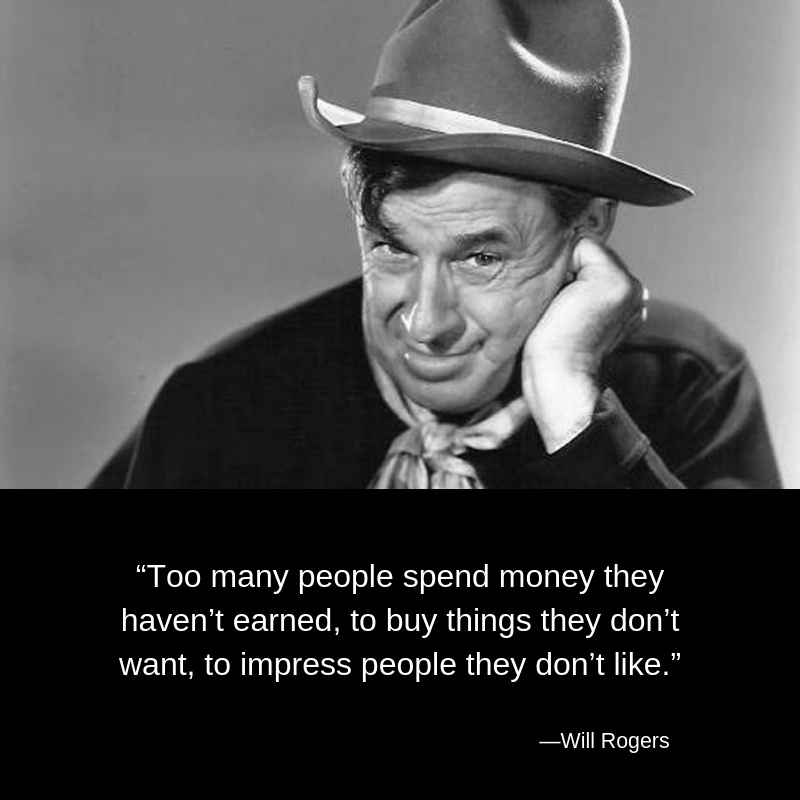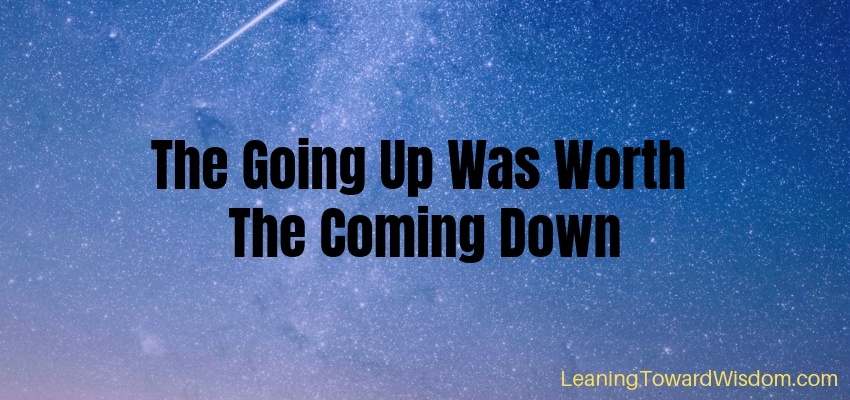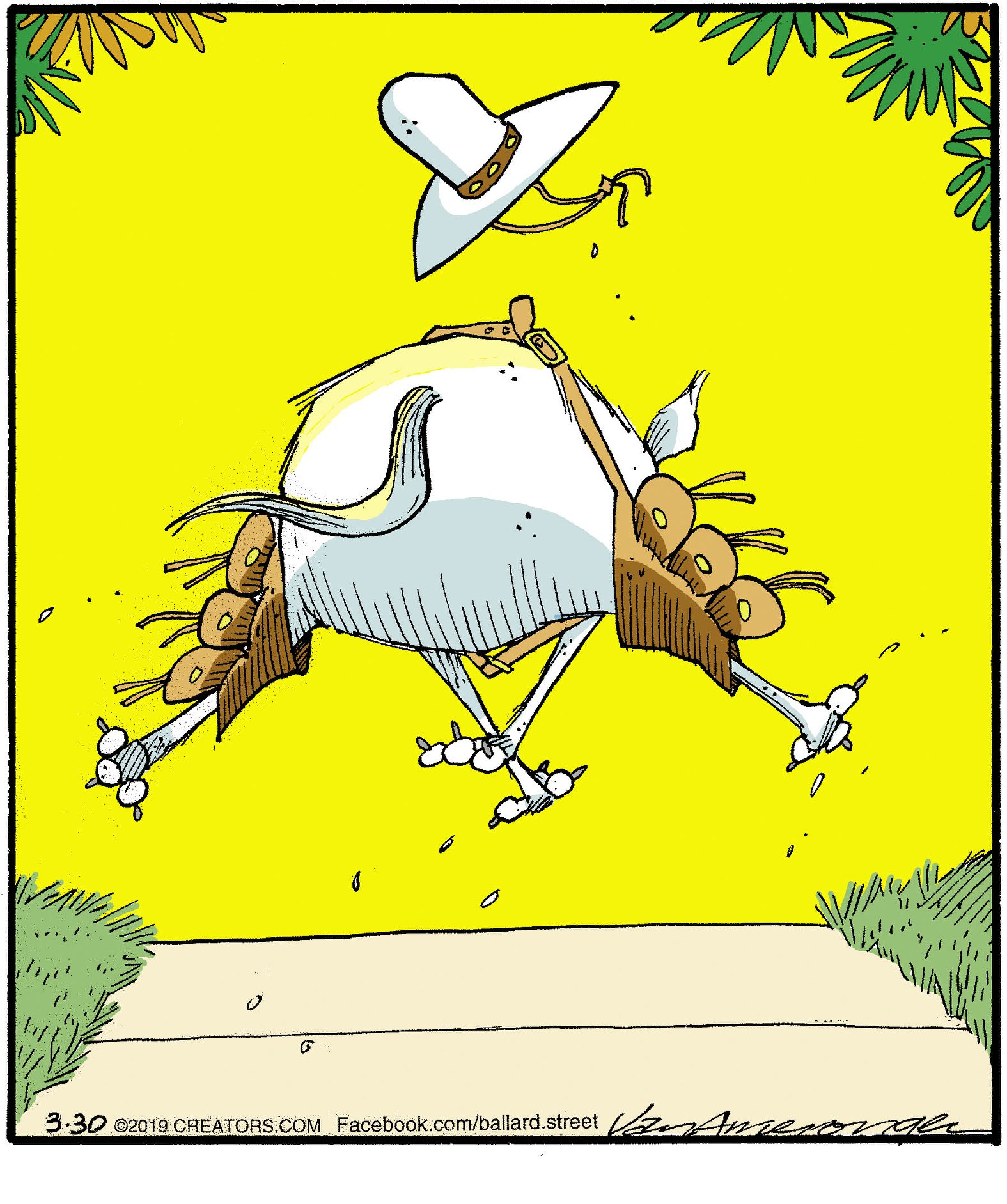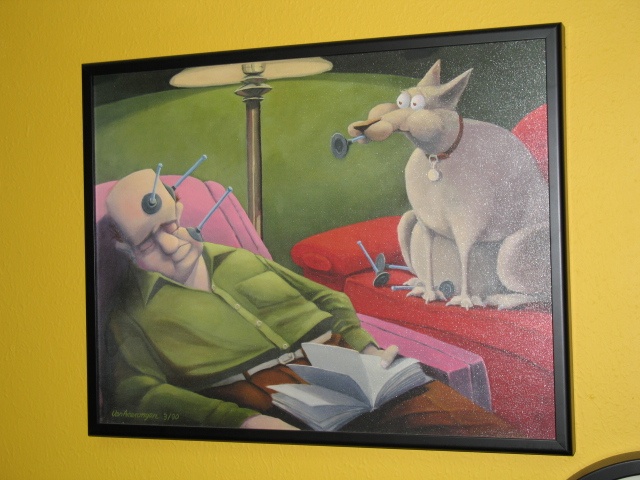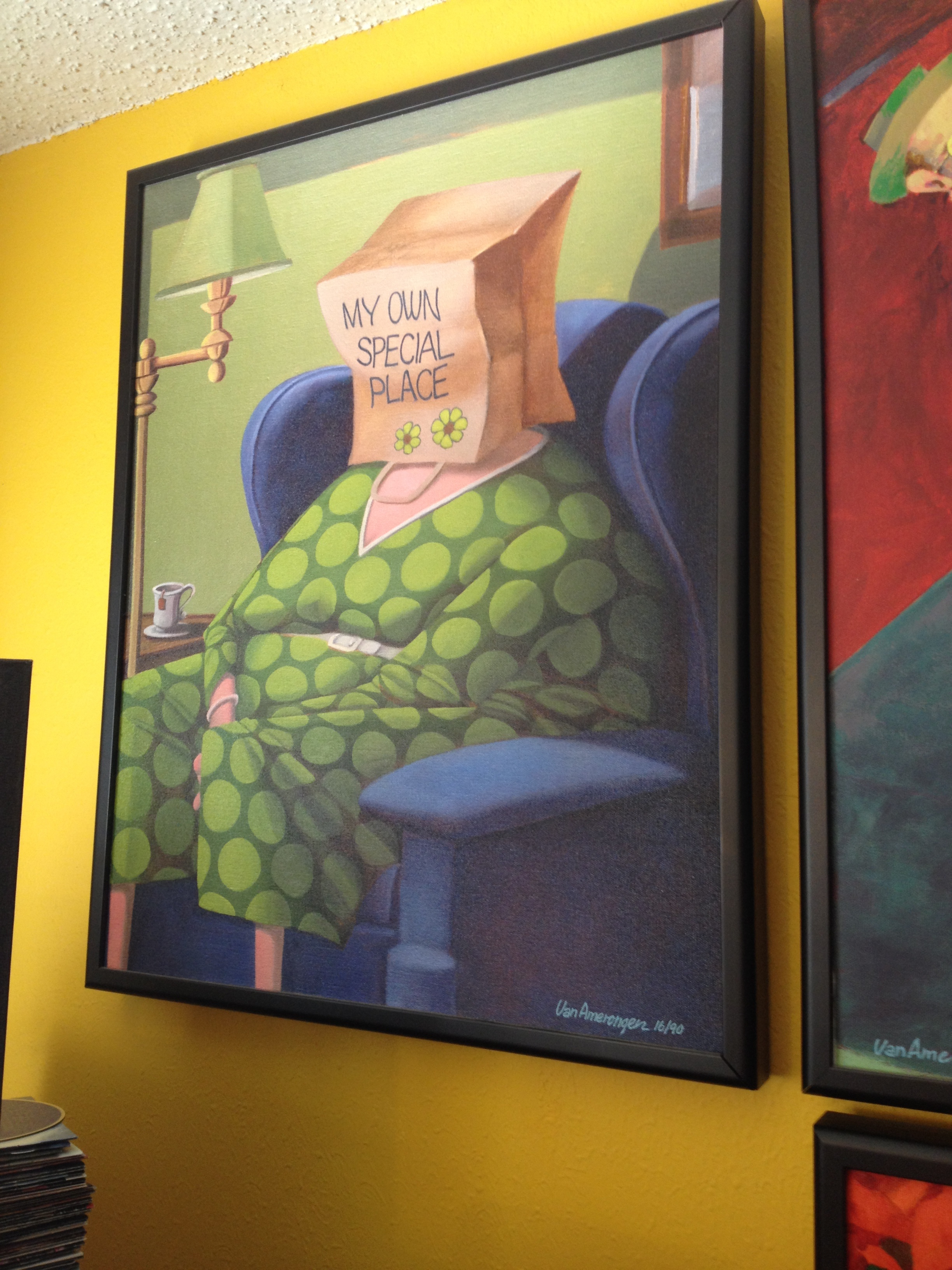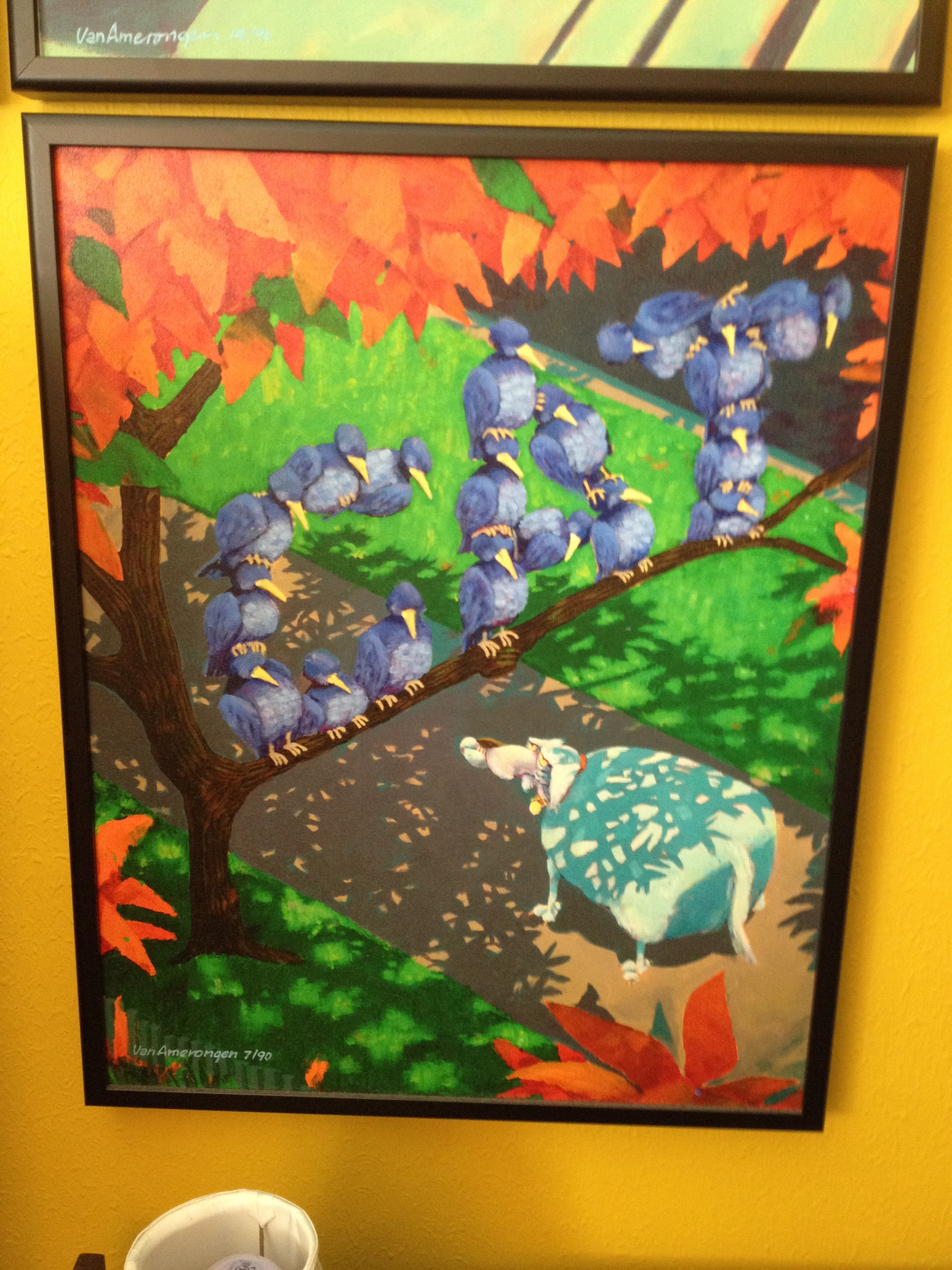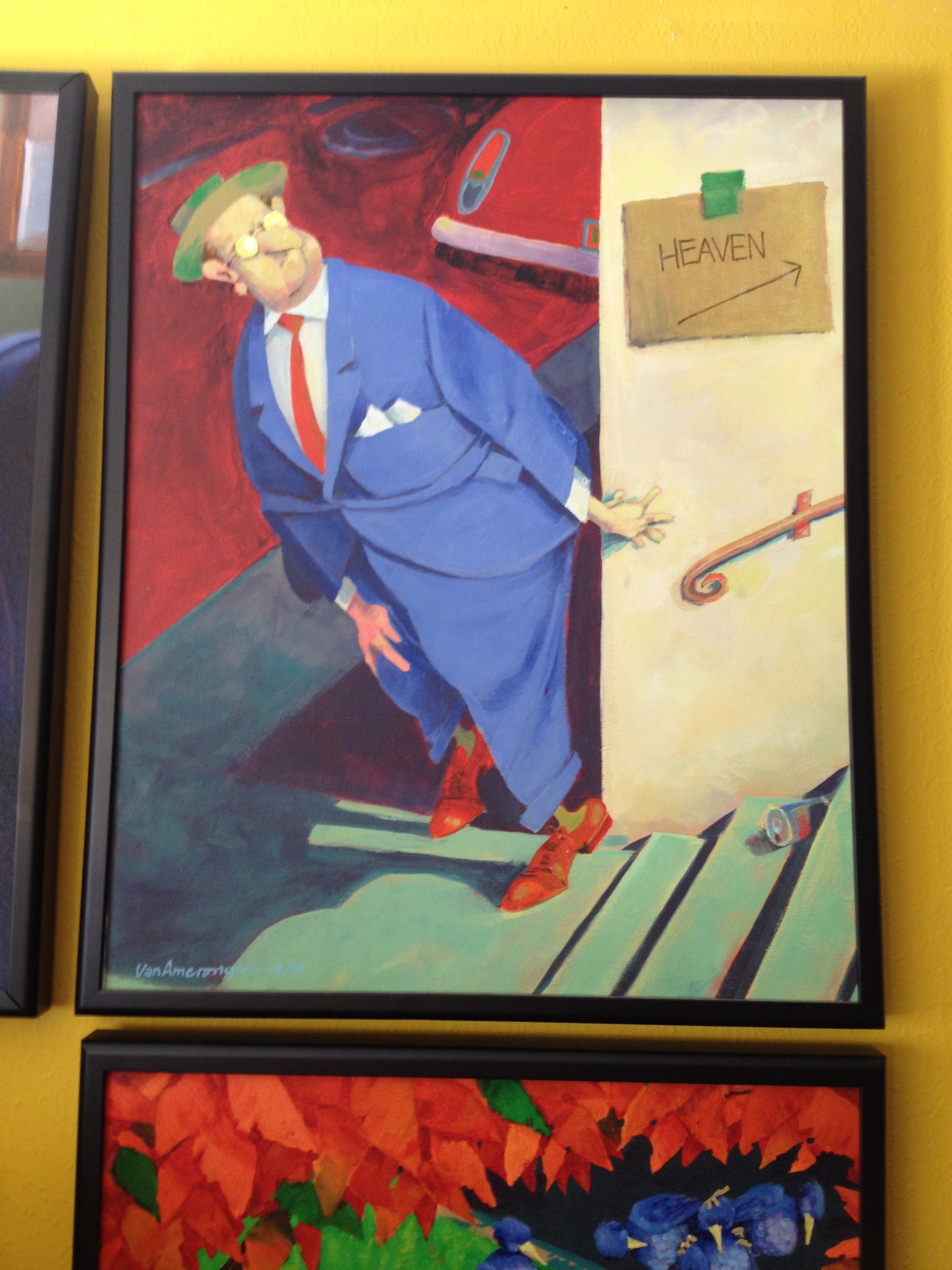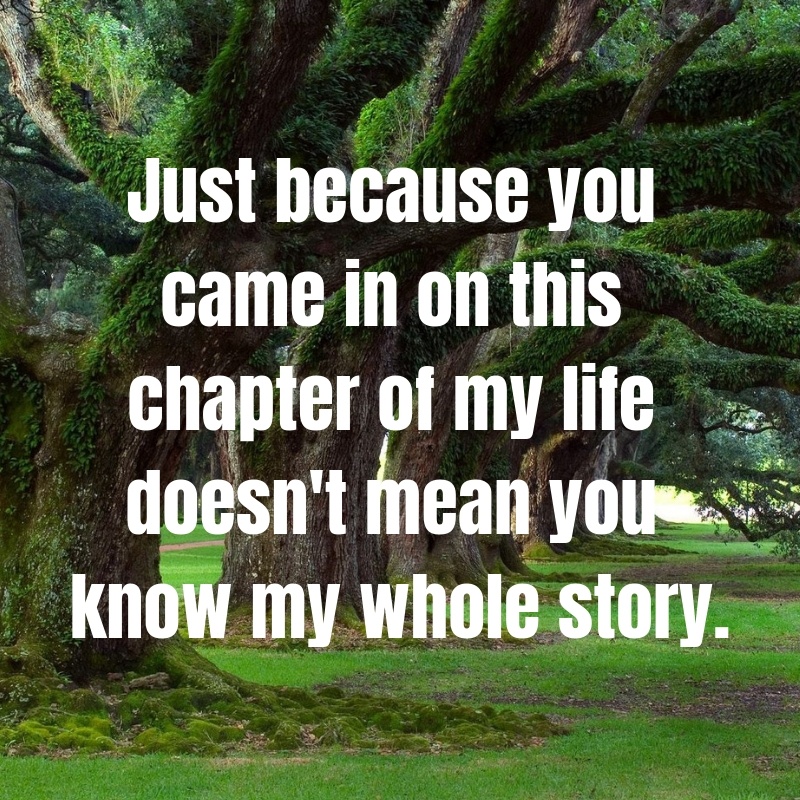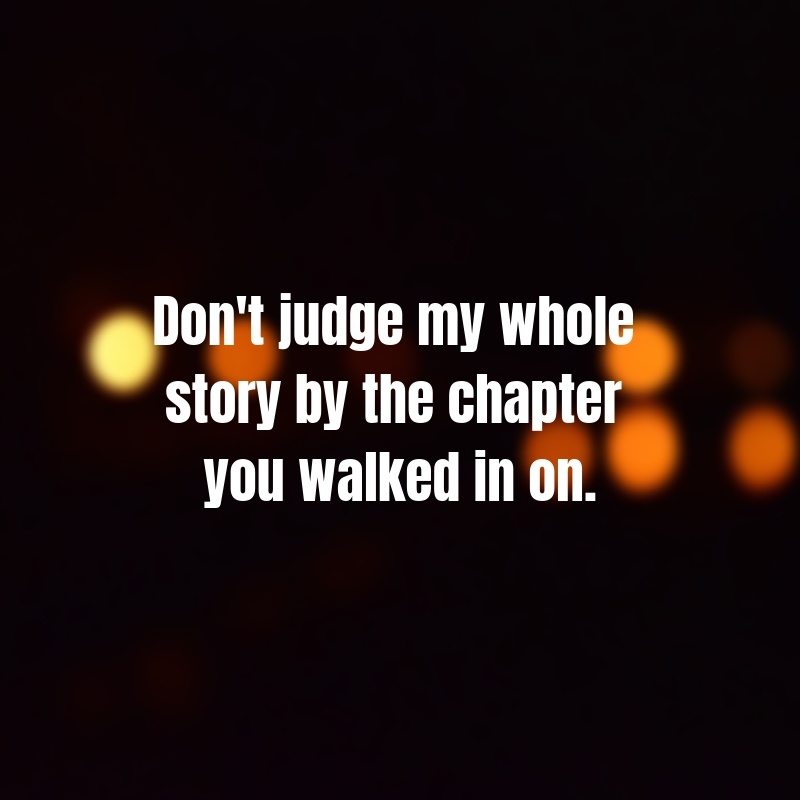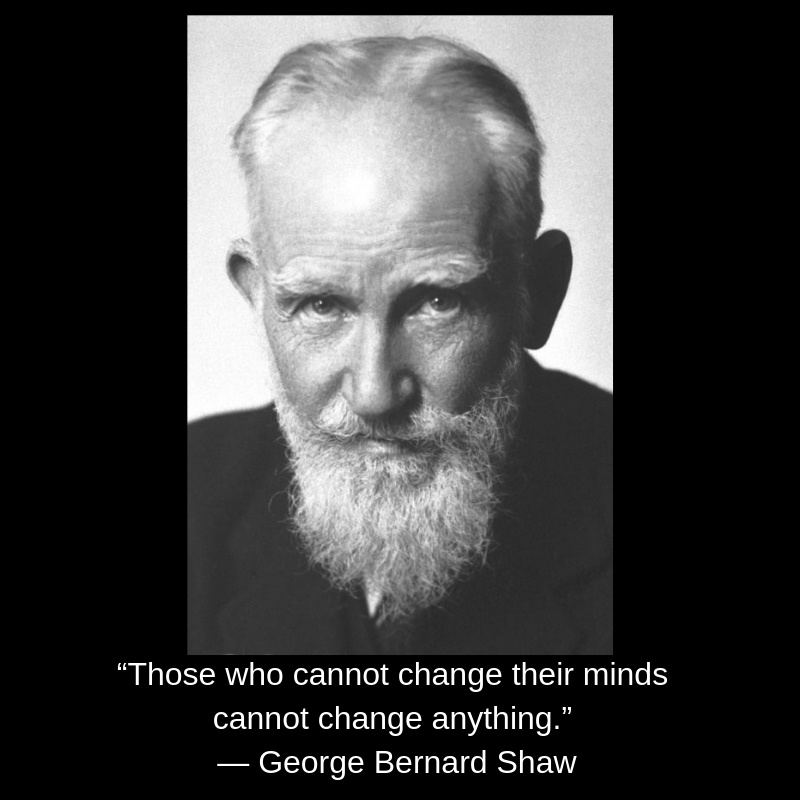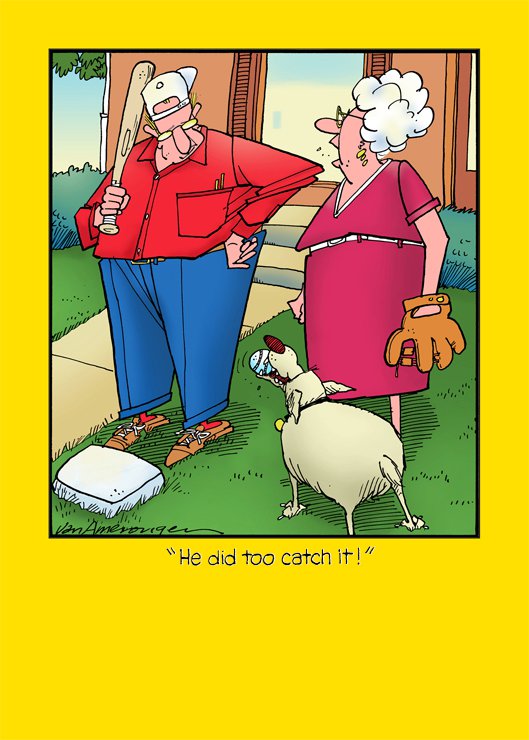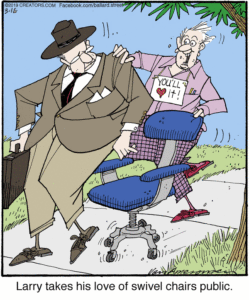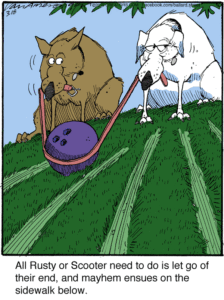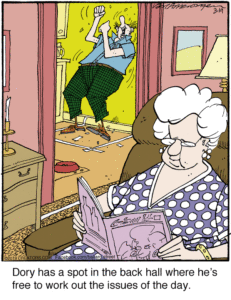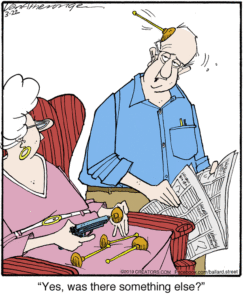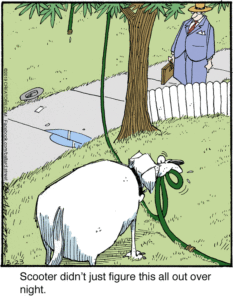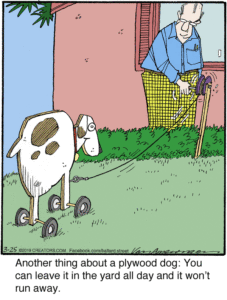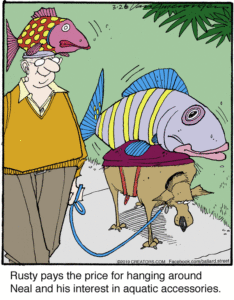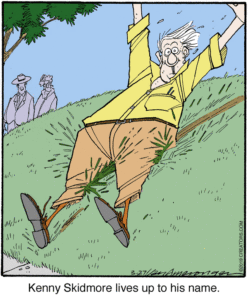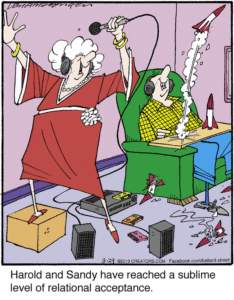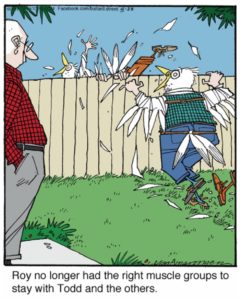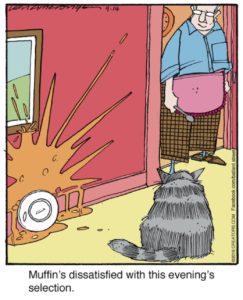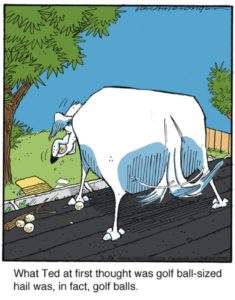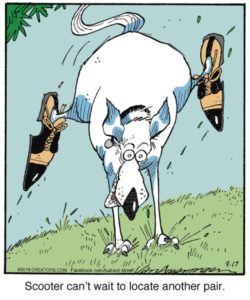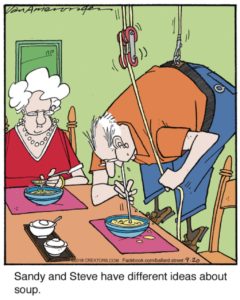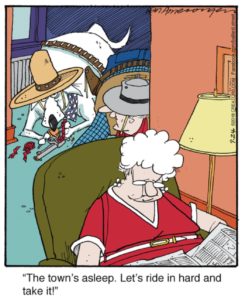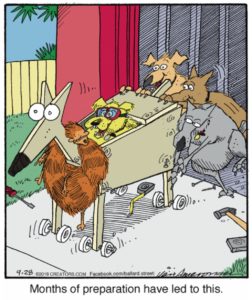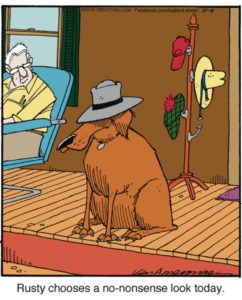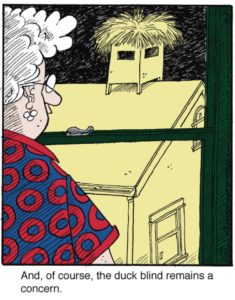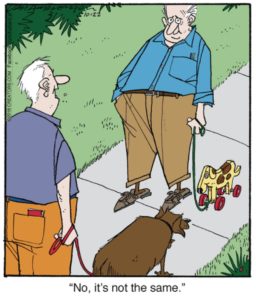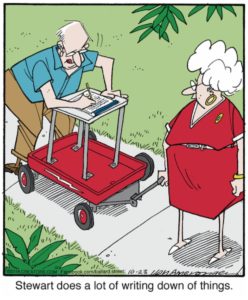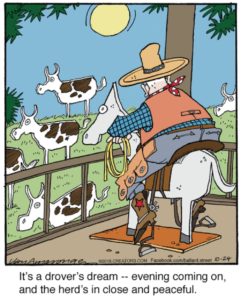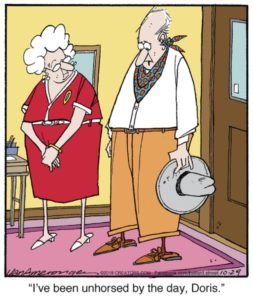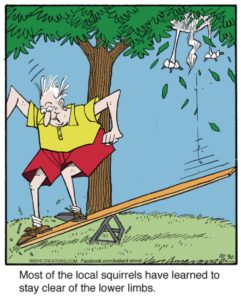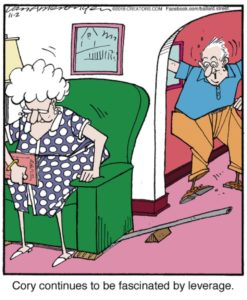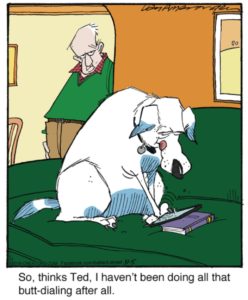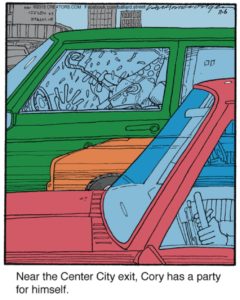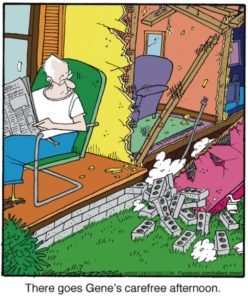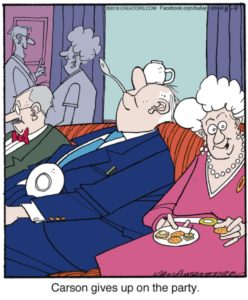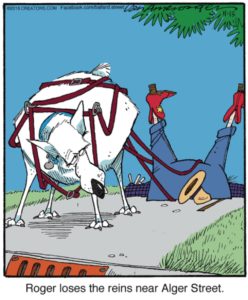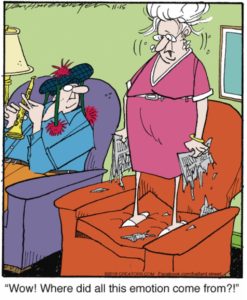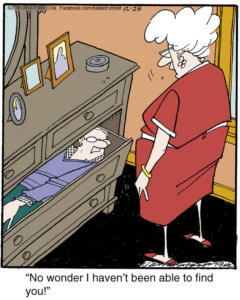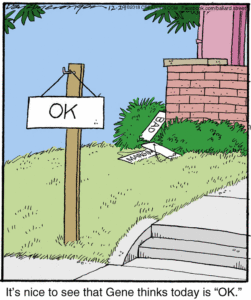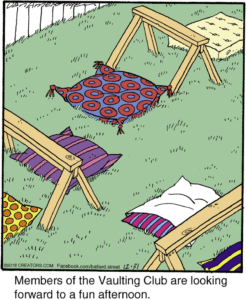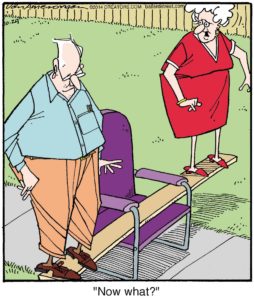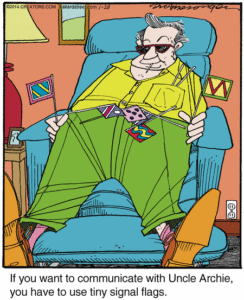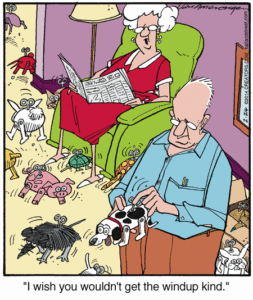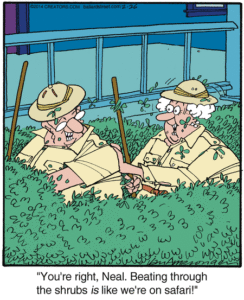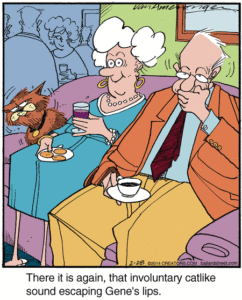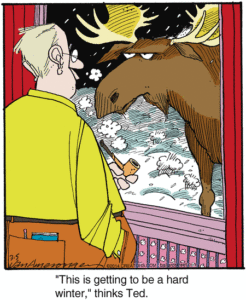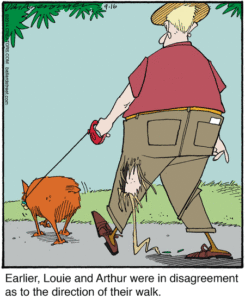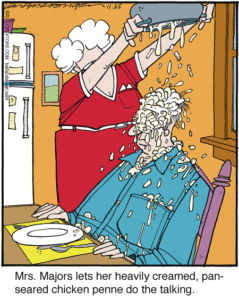Keeping People From Hitting Rock Bottom: Why It May Be The Worst Thing You Can Do (5027)
Podcast: Play in new window | Download (Duration: 30:57 — 35.6MB)
Subscribe: Apple Podcasts | Spotify | Email | RSS | More
Here’s a link to the Instagram post that caught my eye when it was posted just Wednesday. The photo is an older gentleman laying on his side, leaning on one arm – in what appears to be a park. He’s somewhere in Paris, even though the Instagram account is HumansFromNY. Sometimes the posts are from other places. It’s a fascinating account. The gentleman pictured looks like Walter Matthau.
The post copy says this:
“One day she told me she was getting a lawyer. I tried to play catch-up, but it was too late. Apparently I wasn’t enough of a leader in the relationship. We’d fallen into too much of a routine. Or at least that’s what I was told. I’ve been alone for thirteen years now. The hardest part for me was losing the sense of family. My youngest daughter barely speaks to me anymore. I’ve seen her maybe fifteen times since the divorce. I have a five-month-old granddaughter that I haven’t even met. I don’t understand it. I wasn’t that bad. I didn’t openly argue with their mother. I never had an affair. I was present. I was affectionate. Maybe I was a little strict, but she was a tough teenager. We were afraid for her. She was only fifteen and going to nightclubs. There was a lot of screaming back then: ‘you’re an asshole,’ ‘you’re not my father,’ things like that. And maybe her mind is still locked in that time. Now we speak maybe once a year. Whenever I ask her about it, she feels attacked. It’s awkward. There’s no familiarity anymore. And it’s not getting any better. Time is working against us. Because I feel like I’m losing the feeling of being a dad. Of loving. Of caring. Obviously that’s not true, or I wouldn’t be talking about it. But everything fades eventually. At least when someone dies, you can mourn. It’s so much harder when someone just disappears.” (Paris, France)
A recent headline captured my attention.
Selena Gomez Says Her Girl Squad Kept Her From Hitting Rock Bottom
Not because I’m a Selena Gomez fan or follower, but because I have had people in my life who struggled with making poor decisions. I’m in no position to dispute or comment on Selena’s life or struggles. I’ve read enough to know that like many young performers she’s had her share of life struggles. Beyond that, nothing is clear to me.
She’s human. She struggles sometimes. She’s from here in the DFW area where life was hard. Poverty and the assorted ailments that accompany it were part of her life.
She hit big by getting on the Hannah Montana show and by 16 she had a recording contract. I respect what I know of her rags to riches story. But once again I stress – she’s human. She struggles sometimes.
I hope she’s doing well. And perhaps her girl squad indeed did keep her from hitting rock bottom. Let’s assume hitting rock bottom wouldn’t have been a good thing for her – the catalyst to propel her forward. We hope people who hit rock bottom use it for their benefit, but some (perhaps most) don’t. Selena may be among them. I don’t know.
Hitting rock bottom has been on my mind for the past 6 months or so. Sparked by somebody I care deeply about. Somebody behaving dangerously. A life filled with self-destruction. A life that went from serving and helping others to a life immersed in selfishness and hurt. A wasted life. We’ve all seen it happen. Many of us have seen it happen to somebody we know – or used to know – well. We lament that we’re unable to influence them to find their way back to a more positive way of life. A life that’s profitable for them and others.
I’m not mathematically or scientifically inclined, but if I were – and if I were young – I’d head straight into neuroscience and psychology. I was looking around at the books that surround me. Mostly, my books fall into a handful of categories:
a. Religious (Bible commentaries, Bible dictionaries, biographies, debates and more)
b. Business (that includes biographies)
c. Psychology (the mind, why people do what they do, etc.)
d. Other (the smallest category includes satire, non-business biographies, etc.)
Psychology has always been a top topic of interest and curiosity for me. My own. And others.
Watching people. Trying to figure them out. Always favorite things. But I’m a natural born noticer.
Even so, some behaviors are difficult – if not impossible – to fully understand. At least neuroscience and psychology provide some answers.
Brain chemistry is increasingly fascinating to me. I wish I could better understand it but I have a hard enough time connecting dots on beliefs, assumptions, perspectives, emotions, motivations, drives and all the other things that compel behavior.
There’s a story in the Bible, a parable actually. The Lord told the story in Luke 15:11-32.
And he said, A certain man had two sons: and the younger of them said to his father, Father, give me the portion of thy substance that falleth to me. And he divided unto them his living. And not many days after, the younger son gathered all together and took his journey into a far country; and there he wasted his substance with riotous living. And when he had spent all, there arose a mighty famine in that country; and he began to be in want. And he went and joined himself to one of the citizens of that country; and he sent him into his fields to feed swine. And he would fain have filled his belly with the husks that the swine did eat: and no man gave unto him. But when he came to himself he said, How many hired servants of my father’s have bread enough and to spare, and I perish here with hunger! I will arise and go to my father, and will say unto him, Father, I have sinned against heaven, and in thy sight: I am no more worthy to be called thy son: make me as one of thy hired servants. And he arose, and came to his father. But while he was yet afar off, his father saw him, and was moved with compassion, and ran, and fell on his neck, and kissed him. And the son said unto him, Father, I have sinned against heaven, and in thy sight: I am no more worthy to be called thy son. But the father said to his servants, Bring forth quickly the best robe, and put it on him; and put a ring on his hand, and shoes on his feet: and bring the fatted calf, and kill it, and let us eat, and make merry: for this my son was dead, and is alive again; he was lost, and is found. And they began to be merry. Now his elder son was in the field: and as he came and drew nigh to the house, he heard music and dancing. And he called to him one of the servants, and inquired what these things might be. And he said unto him, Thy brother is come; and thy father hath killed the fatted calf, because he hath received him safe and sound. But he was angry, and would not go in: and his father came out, and entreated him. But he answered and said to his father, Lo, these many years do I serve thee, and I never transgressed a commandment of thine; and yet thou never gavest me a kid, that I might make merry with my friends: but when this thy son came, who hath devoured thy living with harlots, thou killedst for him the fatted calf. And he said unto him, Son, thou art ever with me, and all that is mine is thine. But it was meet to make merry and be glad: for this thy brother was dead, and is alive again; and was lost, and is found.
Here’s a son who hit bottom and it was exactly what needed to happen so he could reach higher ground. His pig pen moment was his salvation. What would have happened if he hadn’t hit rock bottom? Do we dare figure that his life would have never been what it became? He likely would have never returned home. His entire life would have been wasted…not just his inheritance. Luckily he ran out of money and it was the best thing to happen to him.
It’s only natural to want to spare people pain. We care about people and don’t want them to suffer. Unfortunately, suffering is exactly what some people need – like the prodigal. Without it, no growth. No improvement.
Helping Others Figure It Out
Over at my GrowGreat.com podcast – a business podcast – I’m constantly saying, “you’ll figure it out.” My role is to help leaders do that. Fact is, it’s our role – all of us individually and collectively – to help one another figure it out (whatever IT is).
Enabling. We hear that word a lot when people are wrestling with how to help friends or family bent on destructive behavior. It’s not what we intend to do – enable people to behave badly – but it’s the net result. That fine line between accepting and facing responsibility or being protected from it. Accountability is often missing.
Poor behavior often begets more poor behavior. A downward spiral can be hard to correct because there’s insufficient motivation to do it.
Alcohol, pills, drugs, crime, immorality, dishonesty…we’re all capable of bad behavior. Sometimes it’s due to poor or lost character. People change. They abandon beliefs and qualities that once served them to keep them on track. Poor choices that set people on a course from which they don’t correct unless or until something forces a change. The value of rock bottom.
Helping people is hard. Preventing people from learning – that could be the result of keeping people from hitting rock bottom. We think we’re helping, but we may be actually helping them get in the way of their own growth and improvement.
Bad events are sometimes blessings.
Bad things happen to everybody. They’re not unique to just you. Nor are they unique to only those we may think are deserving. Bad things happen to good people and bad people alike.
Some years ago the Psychology Today website published a blog post entitled, “Bad Things Happen To Everyone.”
The article points out that when adversity strikes we have two choices: accept it or suffer. It’s the stuff of optimism versus pessimism. We either understand (and truly recognize) that we’re not cursed. That our bad events and circumstances are temporary. We commit to doing what we must to get through it so we can emerge victorious on the other side.
Or…
We embrace that we’re a victim. The universe is conspiring against us. Our self-talk is filled with telling ourselves, “Why do things like this always happen to me?”
Mary is 18 and depressed. Home life isn’t safe. Alcoholic parents prone to drug use have taken a toll on Mary. She starts cutting herself. It’s her senior year in high school and she has no prospects for the future. One evening she cuts herself too deeply and ends up in the hospital. She just about killed herself.
Linda is a 19-year-old college freshman working as a volunteer in the hospital. Serendipity brings these two girls together.
Linda wants to pursue social work of some sort. That’s what took her to this hospital work where a chance encounter with Mary began a friendship that would serve both girls.
Mary, laying in the hospital and enduring psychiatric help for the first time in her life, readily confesses that had this low, low moment not happened – she’d likely be dead. Medical, psychiatric help and Linda helped save her life. The bottom was her way up. And out.
Mary confesses that had she not hit her version of the bottom…she has no idea how her life may have worked out.
Like many people, I’ve been impacted by the current opioid crisis. In the past year, I’ve encountered so many families who have been touched by this crisis. The many stories I hear are heart-wrenching. Stories of what were once good people – responsible people – who over time, under the influence of prescribed pain killers lose themselves.
I’ve heard dozens of stories, mostly from people themselves – people who surrendered to the pain killers prescribed to them. Thankfully, these were the ones who found rock bottom and made the wise choice to climb up and out. I always wonder about those whose story ends in failure. Even the success stories are filled with sadness and loss. Hitting rock bottom can serve us, but it can take e heavy toll on those around us. Those who love us the most.
His real name isn’t Bob, but Bob injured his back while on the job. That was 18 years ago. The pain grew in spite of 2 surgeries. Bob wound up going to a pain management doctor where fentanyl patches were prescribed. At first, Bob felt like his life had been saved.
Bob’s life was a mess though. He’d grown distanced from his wife. The kids weren’t close to him. He felt the guilt of not being the husband or father he knew he should be. The kind of man he knew he could be. The guilt was often so oppressive he couldn’t stand it. So he drank.
A doctor also prescribed some anti-anxiety and anti-depressants to help Bob cope. They didn’t. Help. They did alter his personality. So much so that the kids wondered what had happened to him. He spoke differently, behaved differently and reacted differently. They knew dad drank too much sometimes, but they didn’t have all the facts of how medications were ruling his life – and altering his brain chemistry. Nobody did. Not even Bob.
Bob missed more work. Spent more days in bed than he could track. His life consisted mostly of him chasing a feeling. A feeling of no pain. A feeling void of anxiety. Bob wasn’t happy and couldn’t remember the last he had been. Guilt was increasing, but he was committed to hiding. Lies and fronting were daily habits for him.
Until one day he returned home from work to an empty house. His wife of 12 years and his two children were gone. All their clothing. All their personal possessions. On the kitchen table was a large manila envelope. Inside divorce papers and a letter from his wife. It was over. She’d had enough.
Bob was angry. You might think this was bottom, but it wasn’t. Bob was resentful, bitter and mad. He hadn’t done anything wrong. He was suffering. His boss. His wife. His children. Nobody understood. This was all their fault.
So Bob drank.
One early evening Bob was driving to the store. He was still being treated with Fentanyl patches and a variety of other medications prescribed by his therapist. He was crafty with the alcohol and was able to manage to abstain for days prior to pain management visits where he was routinely drug tested. But this evening things would go horribly bad. Bob hadn’t yet hit rock bottom.
It had been a few months since the family left. His wife, determined to move forward with the divorce, was unwavering. Bob just grew increasingly angry with her. All day on this Saturday he’d spent the day feeling sorry for himself…and blaming all the people who surrounded him. So off to the store he went after having finished what was left of the last six-pack. Intent on buying more beer. Maybe even something stronger.
He exited the store, got in his car and pulled out of the store parking lot. About 2 blocks away it happened. A jogger wearing a reflective vest and a headband with a light on it suddenly hit the right front portion of his car. He slammed on the brakes, jumped out and saw her laying on the pavement unconscious and bleeding. Another car coming from the opposite direction had stopped and was already calling 9-1-1.
Police came. EMTs, too. The jogger was taken to the hospital. Bob, after failing a field sobriety test, was arrested and taken to jail.
Welcome to rock bottom, Bob.
Bob sat in jail wondering how in the world he had ever ended up here. He wasn’t guilty of anything other than having hurt his back on the job many years ago. People didn’t understand how badly he felt. Nobody understood. This was all a big mistake, but he was innocent.
Here we are a few years removed and today Bob admits, “I knew it was all my fault. I just refused to accept reality. I was in such a fog I didn’t know which end was up. I absolutely knew this was down though.”
Bob’s story is like so many I’ve heard over the last year. They’re all the same. And it’s fascinating to me. They are ALL exactly the same!
Bob continues, “I lost my wife and family. At least today I have a decent relationship with my kids, but it’ll never be what it should be. And it’s my fault.”
“I can’t believe that was me,” says Bob. And that’s what I have heard over and over from everybody who finds their way out of the prescribed pain killer abyss. That expression, or one very similar, is uttered by every single person I’ve talked with who found their way beyond prescribed opioids.
Here’s the funny thing about hitting rock bottom. It often involves an outside stimulus. Namely, a substance or substances. Alcohol. Drugs. Prescribed or otherwise. Addiction. To something.
Me? I’m especially interested in opioids because that’s the very reason I’m quite interested in rock bottom. My only interest in hitting rock bottom is the good it can accomplish. Like many other people who have lost people they love to various issues, I want the very best for the person I love. But right now they’re lost seemingly unable to find their way back home. And it wrecks me.
But I know my bottom isn’t their bottom. They have to hit their own or they’re not likely going to alter their course. And I know it won’t end well if they don’t figure this out.
Bob’s words and all the other stories of the many others ring in my ears. “It’s like it wasn’t me.”
Each person behaved in ways that were 180 degrees from how they once behaved. They betrayed spouses, children, family, friends, faith and whatever else had once been valuable to them. Some were able to climb out of the bottom and regain much of what they lost. None walked away fully whole. Every single one paid a very high price, but each one is thankful today that they didn’t lose more.
“I just can’t believe I did that.”
“I would have never believed I could do that.”
Words of profound bewilderment about their own choices and behaviors.
Bob’s victim fully recovered. He accepted a deal with the district attorney to plead guilty. He served on prison time, but between the criminal ordeal and the civil suit filed by the jogger…Bob lost everything he had. And more. He’ll spend the rest of his life paying off a debt he knows he can’t repay.
Alimony to the wife he forsook.
Child support to the children he didn’t serve.
Money to the jogger whose life he disrupted.
Fines and attorney fees to the society he failed.
One big colossal failure. That’s how Bob eventually saw his life. But only when he hit rock bottom. In spite of all the loss, Bob is a very different man. Today he’ll tell you he’s the man his wife married. No matter that she’s not going to take him back, she’s happy he’s found himself. At least he’s not the miserable human being he once was around their children.
Bob got his life back. His career is on track toward heights that wouldn’t have been possible with the opioids. His children are beginning to gain respect for their father…again. He struggles with forgiving himself for all the damage he’s done, but he’ll tell you he’s getting better each week. “It’s a process,” says Bob. “I know I’ll be in this process the rest of my life, but at least today I have a life.”
What’s most fascinating to me about hitting rock bottom – and the lives of those who need it most – is the story of the prior life. These folks were responsible, upstanding citizens. Most will tell you they were once morally upright, too. “I would have never cheated on my spouse,” is a common refrain. But they did. “I would have never lost our life savings,” say others. But they did. “I would have never jeopardized my career,” say some. But they did.
Each and every one was once something very different than who they became. They look back after hitting rock bottom and none can recognize the person they became. The person who needed to hit rock bottom.
How can we help them?
That’s the question I wish I could answer, but I’m going to disappoint you. I don’t have an answer. That’s the subject of my own pain. Desperately wanting to help somebody I love find their way back to who they once were – to who they truly are.
Character. It’s at the heart of the fall people take when they surrender to bad things like addiction. Their character fades. The beliefs and convictions that once ruled their life give way to utter selfishness. Whatever compass guided their lives disappears in a life devoted to doing only what they want to do. Everybody else in their life is the cause of their pain and suffering. Their brain thinks they deserve whatever they want. So they pursue whatever makes them feel good at the moment. But it never lasts…keeping them on the merry-go-round of always chasing, never catching.
The recovery of character, self-respect, and self-forgiveness are compelling reasons for not standing in the way of letting those we love hit rock bottom. Sadly, there are no signs to tell us “Welcome, You’ve Just Hit Rock Bottom.” But we know it when we see it. And it either kills us or helps us look up to see blue sky and work like crazy to get back up.
Keeping People From Hitting Rock Bottom: Why It May Be The Worst Thing You Can Do (5027) Read More »

